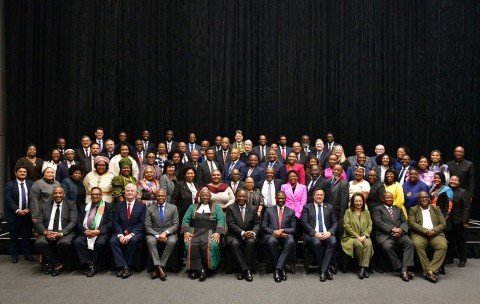Singaporeans React: Ramaphosa's Ministers Finally Agree to Lifestyle Audits - But Will Results Be Public?

Johannesburg, South Africa – In a move that's been years in the making, South African President Cyril Ramaphosa and his executive team have confirmed they will undergo lifestyle audits during the current financial year. This long-awaited commitment, initially pledged back in 2018, aims to address concerns about corruption and transparency within the government.
A Promise Kept, But With Caveats
The announcement has been met with cautious optimism from the public. For years, citizens have demanded greater accountability from their leaders, and the promise of lifestyle audits was seen as a crucial step in that direction. However, a significant point of contention remains: the outcomes of these audits will not be made public. This decision has sparked debate, with many questioning the effectiveness of the audits if the findings are kept confidential.
Why Lifestyle Audits?
Lifestyle audits are a comprehensive process that examines the financial affairs of individuals, including their assets, liabilities, and income. They are typically conducted to detect discrepancies between a person's known income and their lifestyle, which could indicate undeclared income or involvement in corrupt activities. In South Africa, the need for such audits has become increasingly apparent in light of widespread allegations of corruption within government institutions.
The Delayed Implementation
The initial pledge for lifestyle audits was made in 2018 as part of a broader anti-corruption drive. However, the implementation has been plagued by delays and bureaucratic hurdles. Various reasons have been cited for the slow progress, including logistical challenges and concerns about legal frameworks. The recent agreement signals a renewed commitment to tackling corruption and restoring public trust.
Public Reaction & Concerns
While many welcome the move, the decision to keep the audit results private has drawn criticism. Transparency advocates argue that the public has a right to know if their leaders are living beyond their means or engaging in questionable financial practices. “What’s the point of conducting audits if the results are hidden?” questioned political analyst, Thandiwe Nkosi. “True accountability requires openness and transparency.”
Social media platforms have been buzzing with reactions, with many expressing skepticism and demanding greater transparency. #LifestyleAudits and #Ramaphosa are trending, reflecting the public's keen interest in the matter.
Looking Ahead
The coming months will be crucial in determining the effectiveness of these lifestyle audits. While the process itself is a positive step, the lack of public disclosure raises serious questions about its ultimate impact. Pressure is mounting on President Ramaphosa to reconsider his stance and release the findings, even if in a redacted form, to ensure greater accountability and rebuild public trust in the government.
The situation highlights a broader challenge facing many countries: balancing the need for privacy with the public's right to know. It remains to be seen whether South Africa can strike the right balance and deliver on its promise of a more transparent and accountable government.





